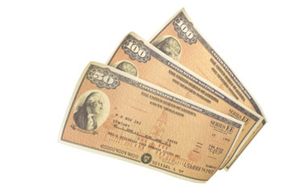U.S. reserve funds securities can be an extraordinary venture. They are protected, offer a proper financing cost, and are not expose to state or nearby personal duties. Whether you got U.S. Reserve funds Securities as a present from your grandparents or got them through a finance derivation on your most memorable work, you might possess U.S. Investment funds Securities that have quit procuring revenue.

It is moderately easy to trade out investment funds securities that have developed and are done acquiring revenue. Assuming you really want admittance to cash, even bonds that haven’t arrived at development might worth turn in. On the off chance that you are battling with obligation, trading out a bond is an effective method for taking care of it, regardless of whether the bond is traded out right on time. Most bonds can be traded out following one year, yet you will lose three months of premium assuming you cash them in before five years. In the event that you are holding many dollars in reserve funds securities, you will in any case get them back at their ongoing worth.
The most effective method to Trade out
You can reclaim your old paper bonds at many banks and other monetary organizations. The TreasuryDirect site doesn’t keep a rundown however recommends you call around. Remember that investment funds security premium is dependent upon government annual expense however not state or nearby tax.11
You can either report it and pay charge each year that you hold the bond or hold on until the end and pay the duty at the same time, as a great many people do. In the wake of reclaiming your bonds, you’ll get an IRS Structure 1099-INT, mirroring your available gain.12
An exemption, in certain cases, is assuming that you utilize the returns from bonds gave in 1990 or later to pay for qualified advanced education costs for yourself or your kid. Those standards, which incorporate pay limits, are made sense of in the Training Arranging part of the TreasuryDirect site.
As recently referenced, in the event that your bonds are electronic, you can cash your bonds out in full (with at least $25), yet assuming you cash just a piece of a bond’s worth, you need to keep $25 in your TreasuryDirect account, Paper bonds can’t be separated like electronic securities. You can sign into your TreasuryDirect record to cash your electronic reserve funds securities. The money sum you procure from your security can be credited to a reserve funds or financial records through your TreasuryDirect account. The exchange typically takes around two work days from the day you recovered them online.10
There are rules around when you can trade out a reserve funds security, and they generally rely upon the kind of security gave. Generally, you probably possessed the bond for a whole year, i.e., somewhere around a year from the date the bond was bought, to trade it out. After the one-year point, you can feel free to trade out your bond, however you will get hit with a punishment of 90 days’ revenue procured on the bond. There is no punishment on the off chance that you basically clutch the bond following five years. There is esteem in clutching most bonds. The more they developed, the more premium bonds acquire.
How Would I Trade out Reserve funds Securities?
You can trade out most paper bonds (for certain exemptions) at your bank or credit association. You can trade out electronic securities online with TreasuryDirect, which will send the money from the cling to your reserve funds or financial records inside two work days. There are a few securities that you can’t cash at your bank, including HH Series Reserve funds Securities.
Where Could I at any point Trade out EE Reserve funds Securities?
To trade out your EE Reserve funds Securities, you just need to sign into TreasuryDirect and follow their bearings. In the event that you are changing out a full or fractional sum, it very well may be sent from TreasuryDirect to your checking or bank account. Assuming you have paper bonds, you can simply ask your bank or credit association.
How Might I Stay away from Expenses While Trading out a Reserve funds Security?
Keeping away from charges when you cash out your bonds, rely upon a couple of measures. For instance, Series I Bonds can be utilized (tax-exempt) to pay for training costs. Series I Bonds are dependent upon government burdens yet not state and nearby assessments. At the point when you buy Series EE or Series I Bonds you can pay charges on the interest every year, or you can pay it toward the finish of its term. Generally speaking, assuming you cash out bonds, you should pay charge on the premium the bond procures, except if it is utilized for instruction or under unambiguous circumstances.











